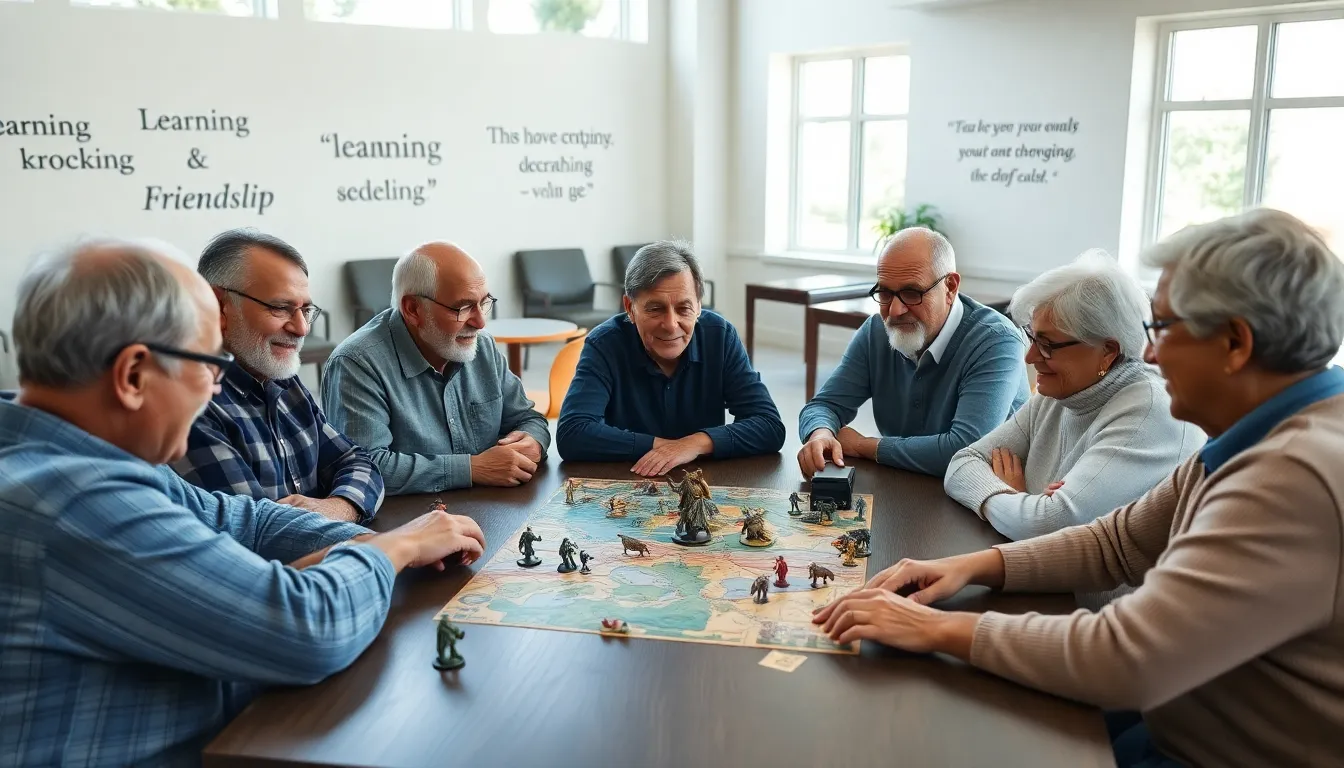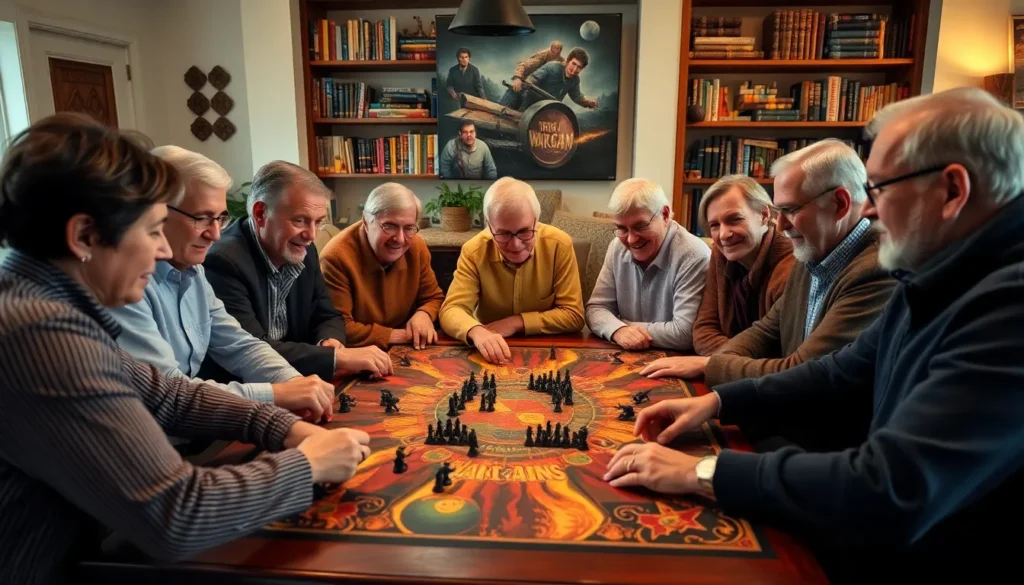Table of Contents
TogglePicture this: a group of elders bent over a game board, strategizing like seasoned generals. Who said war games are just for kids? The world of war games offers an engaging way for older adults to unleash their inner tacticians. In this text, we’ll explore why these games hold a special allure for the golden years, whether it’s a communal tabletop game in a cozy living room or an epic digital battle. Buckle up, war awaits.
Understanding War Games: A Brief Overview

At its core, a war game simulates conflict through various strategies and tactics. Often rooted in historical scenarios, these games require players to think critically about their moves. There are two primary types: tabletop war games, which might feature intricate miniatures, and video games that immerse players in dynamic landscapes. The beauty lies in their complexity and the depth of engagement they foster. It’s not merely about winning: it’s about the journey, connections, and learning that come with each session.
The Appeal of War Games for Older Adults
Why have war games captured the hearts of older adults? It’s simple. They promote strategic thinking and provide a sense of accomplishment. Engaging with a tactical challenge can rekindle memories of youthful adventures. Also, they’re social experiences that allow elders to bond with peers, laugh over friendly rivalry, and share advice. In essence, these games throw open a door that ties the past to the present, enhancing both cognitive function and interpersonal relationships.
Types of War Games Suitable for Elders
When it comes to finding the right war games for older adults, variety is key. Here are some categories worth exploring:
Benefits of Playing War Games in Later Life
Engaging in war games brings numerous advantages. They can spark joy, challenge the mind, and perhaps even lighten moods. Such experiences offer an escape from everyday life while simultaneously strengthening mental faculties.
Cognitive and Social Advantages
Increased cognitive stimulation is perhaps the most significant benefit. Games demand focus, strategy, and planning, all of which keep the mind agile. Also, they provide opportunities for socialization, which many elders crave. Interacting with others in a gameplay setting fosters friendships and encourages effective communication, vital for emotional well-being.
Emotional and Therapeutic Benefits
Last but not least, war games can serve as therapeutic outlets. They encourage emotional expression, allowing players to tap into their feelings through fictional scenarios. Playing also provides a sense of achievement and control, crucial as individuals navigate various life changes. Engaging in battle from the comfort of a game can be remarkably empowering.
Getting Started with War Games
Ready to jump into the thrilling world of war games? Here’s a streamlined approach to ease the transition:
Recommendations for Elders and Caregivers
For those just starting out, consider beginning with simpler games that focus more on enjoyment than intricate rules. Titles like “Ticket to Ride” or “Catan” introduce strategic thinking without overwhelming complexity. These games encourage group play, making them perfect for family gatherings or friend hangouts.
Tips for Enjoyable Gameplay
First off, make sure everyone feels included and valued. Turn gameplay into a friendly event by arranging snacks and comfortable seating. Establish a supportive atmosphere where everyone can ask questions and learn together. Don’t rush or put undue pressure on anyone: the focus should be on fun. Encourage discussion about strategies, allowing different perspectives to enrich the overall experience.





